Open · Taiwan
1984: The Legend of Chang Yung-fa, the Container Shipping King
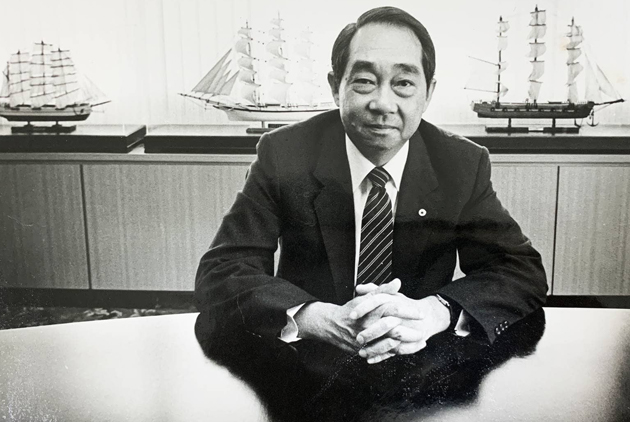
Source:CommonWealth Magazine
Chang Yung-fa grew up in Keelung and like other children there depended on the sea to survive. But unlike the others, he was able to see beyond the port’s wharves and had the vision and daring to create a marine shipping kingdom.
Views
1984: The Legend of Chang Yung-fa, the Container Shipping King
By Mei-chih Fang (Sept. 1, 1984)CommonWealth Magazine
The 57-year-old Chang Yung-fa is sitting in a temporary tent set up on a Keelung wharf, peering out at a four-story high green container ship spanning an area of two soccer fields that is slowly approaching the dock.
Flags of many countries are flying on the ship, the “Ever Garden,” fluttering in the wind. Built by Taiwan’s China Shipbuilding Corp., the ship will soon fly the flag of the Republic of China and Evergreen as it sails around the world.
Having a ship plying the round-the-world route has been one of Chang’s lifelong dreams, and he has finally seen it come to fruition 16 years after founding Evergreen Marine Corp.
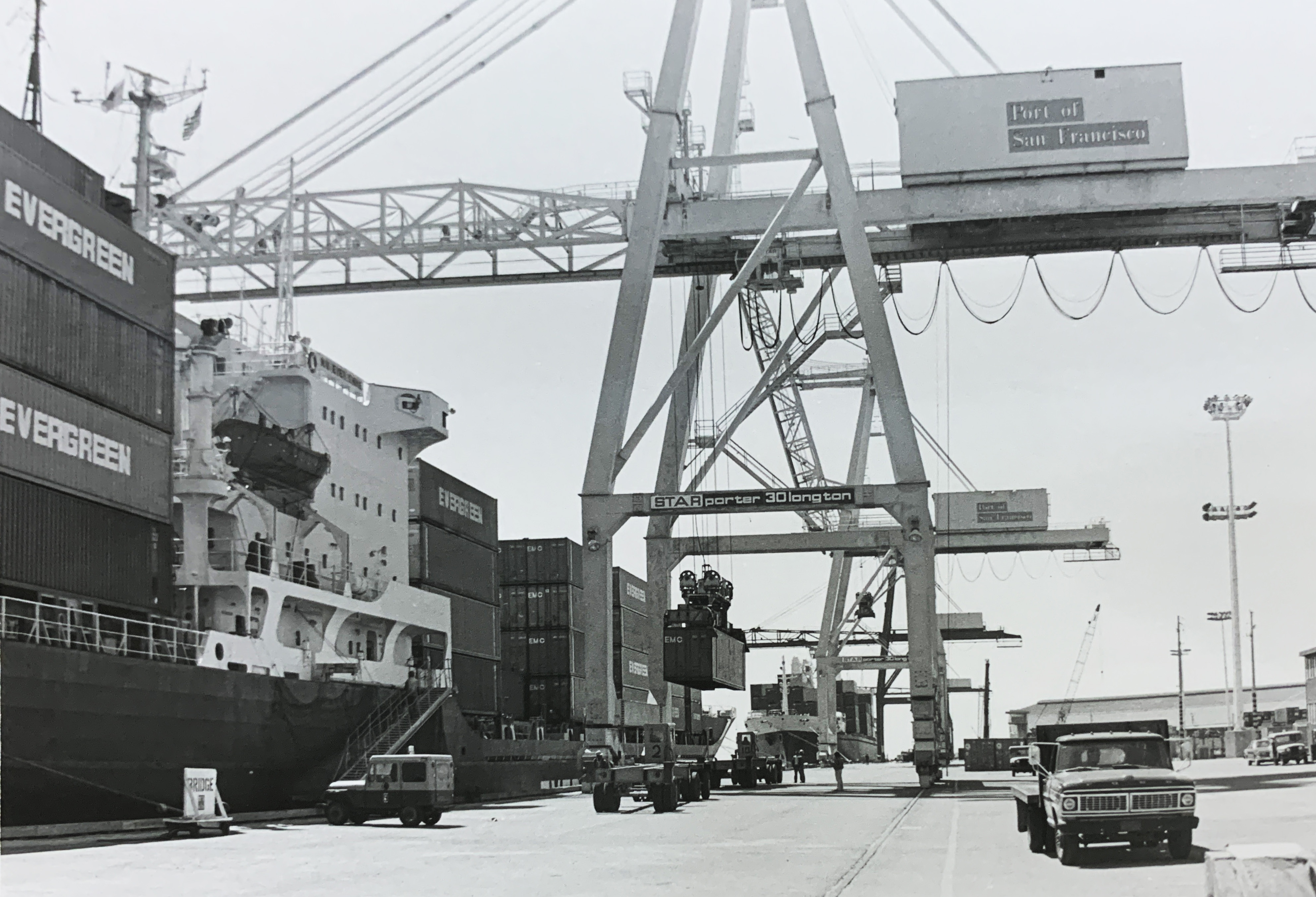
Who could have foreseen that this son of a ship’s carpenter would use his fleet to conquer the world?
Chang's destiny was tied to the sea since he was born. His ancestral home was in the Penghu Islands and he grew up in Keelung, the main port city in northern Taiwan, in a relatively poor family that lived off the water, whether fishing or working on commercial vessels.
As a ship’s carpenter, Chang’s father was away for much of the year, and before the end of World War II, he died at sea when Chang was 18. It fell on his widowed mother to raise seven children.
Throughout his childhood, Chang had a certain restlessness and seemed unhappy with the status quo. After graduating from a commercial high school, he joined a Japanese shipping company as a clerk, but eventually figured he would not have much of a career if he spent his life on shore.
So he worked his way on to a vessel, starting first as a tally clerk (responsible for recording the ship’s cargo) and then becoming a crew member. Whenever a ship he was on returned to Keelung, most of the crew would go out drinking, but Chang would head to a bookstore, looking for books on shipping.
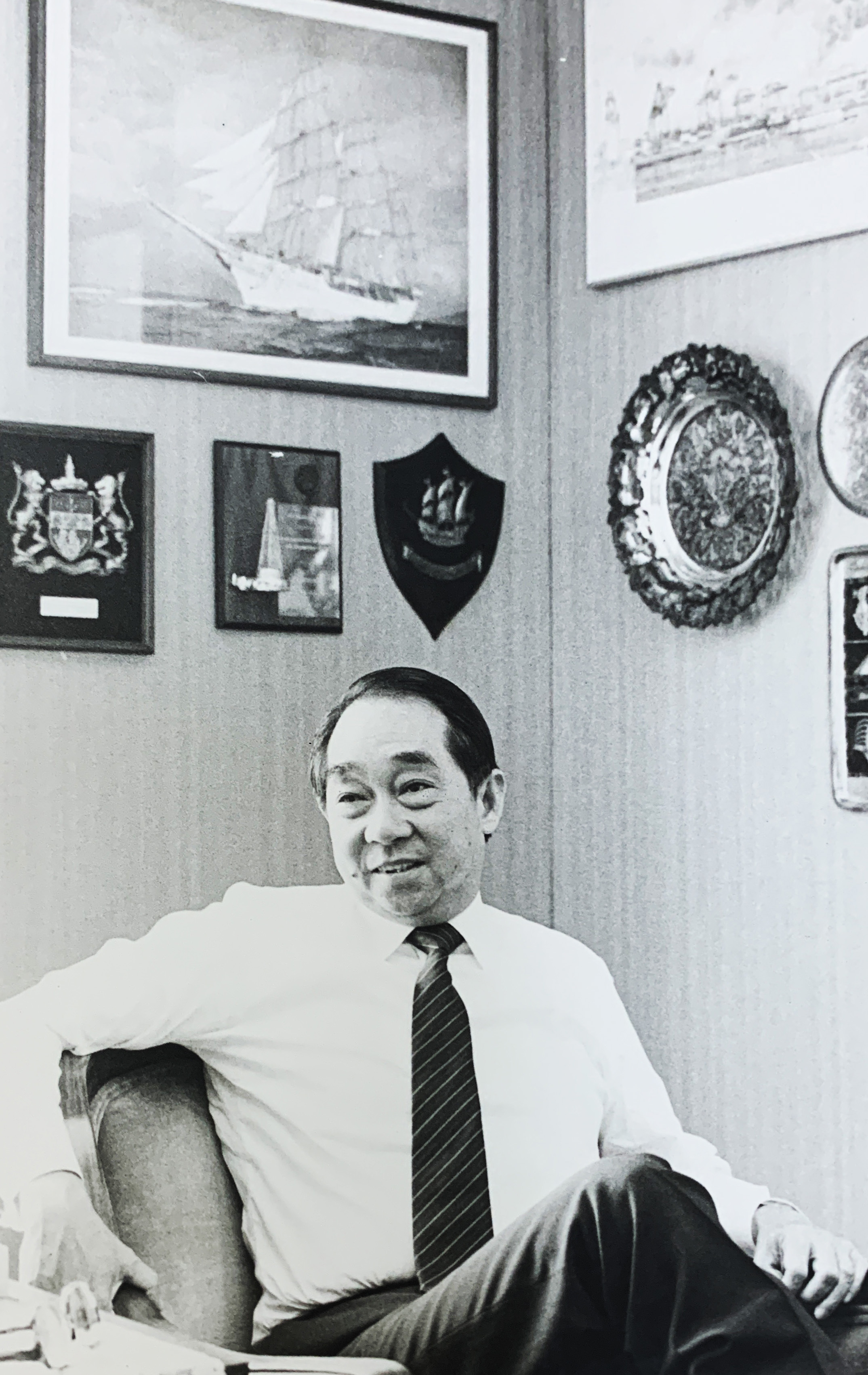
After working his way up to chief officer, he partnered with others to establish two new shipping companies, but the shareholders broke up when some of Chang’s partners stuck to visions that were too conservative for him.
In 1968, he founded Evergreen Marine with a 15-year-old freighter he got through the breakup, and he would rely on his vision and smarts and knack for identifying new trends in the industry to lead Evergreen forward.
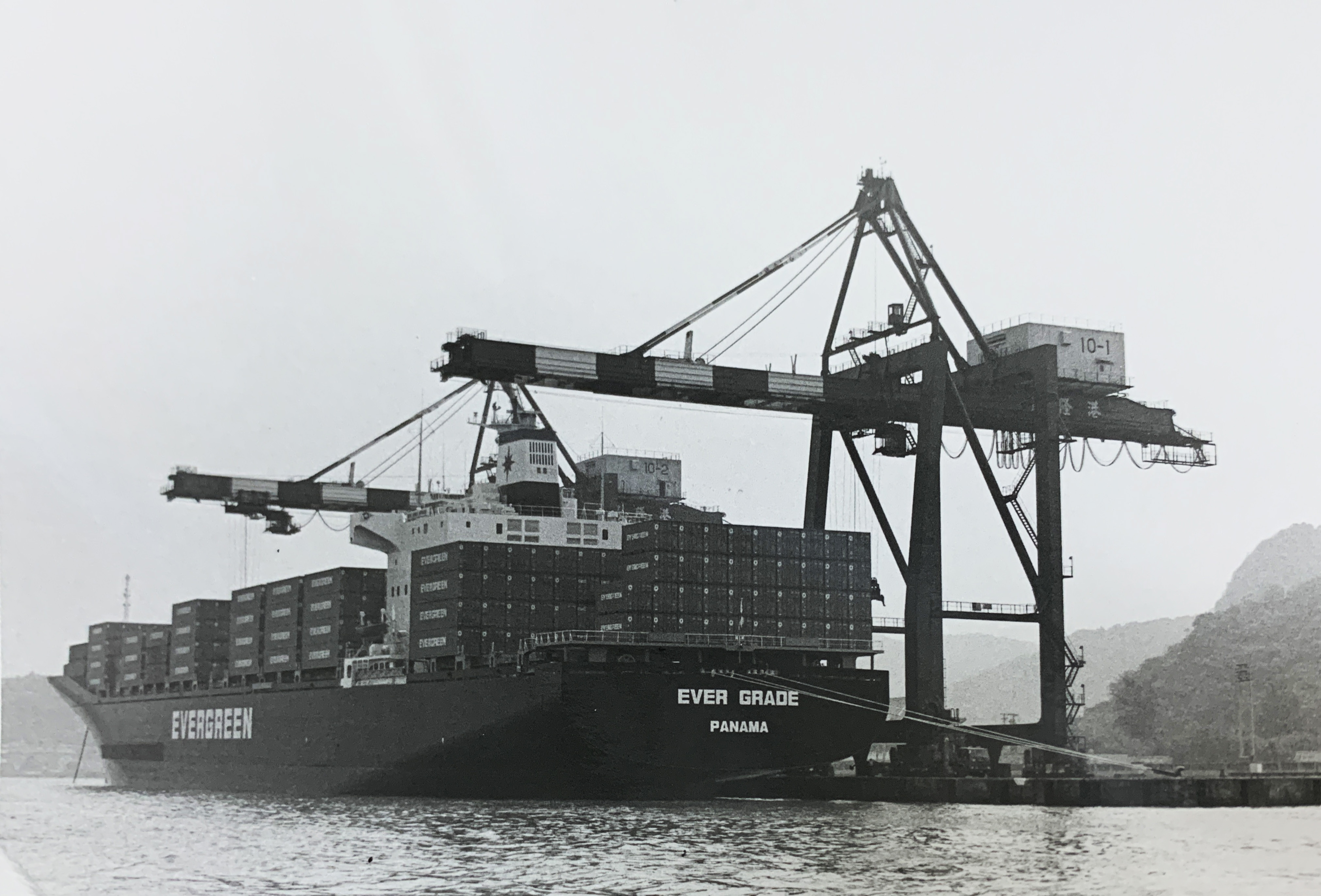
He would also need the tenacity and refusal to accept defeat he has become known for to survive the rough beginnings of his new company.
Breaking in the Hard Way
When Chang founded Evergreen, only foreign shipping companies were active on routes to the Middle East, putting Taiwanese exporters at a disadvantage. They were often unwilling to accept orders from customers in the Middle East because the foreign shippers working the route preferred carrying higher-value Japanese goods, forcing Taiwanese vendors to have to beg for space.
Seeing that Taiwanese competitors shunned the Middle East route, Chang decided to make that the first route his one old boat would serve. A Japanese friend warned him against the idea, telling him that members of the Far Eastern Freight Conference (FEEC) were preparing to gang up on Evergreen, which was not a member of the FEEC, and monopolize his sources of cargo. But Chang insisted his mind was made up.
On Evergreen’s first voyage to the Middle East, the only cargo Chang could rustle up were cumbersome iron bars loaded in Japan. After taking that difficult first step, however, Evergreen gradually managed to get the backing of Korean and Taiwanese exporters, giving the business life.
Over the 16 years that followed, Chang continuously expanded his marine shipping universe through his persistence and reputation for being as good as his word.
Many ocean freight customers in the West came to realize that when they heard the name Y.F. Chang, they knew he “would do as he decided, and would not change his mind.”
One observer suggested that many leading entrepreneurs have vision and daring, but Chang stands apart from them with his ability to both grasp the big picture and notice the smallest details. Those traits are imbued in the company.
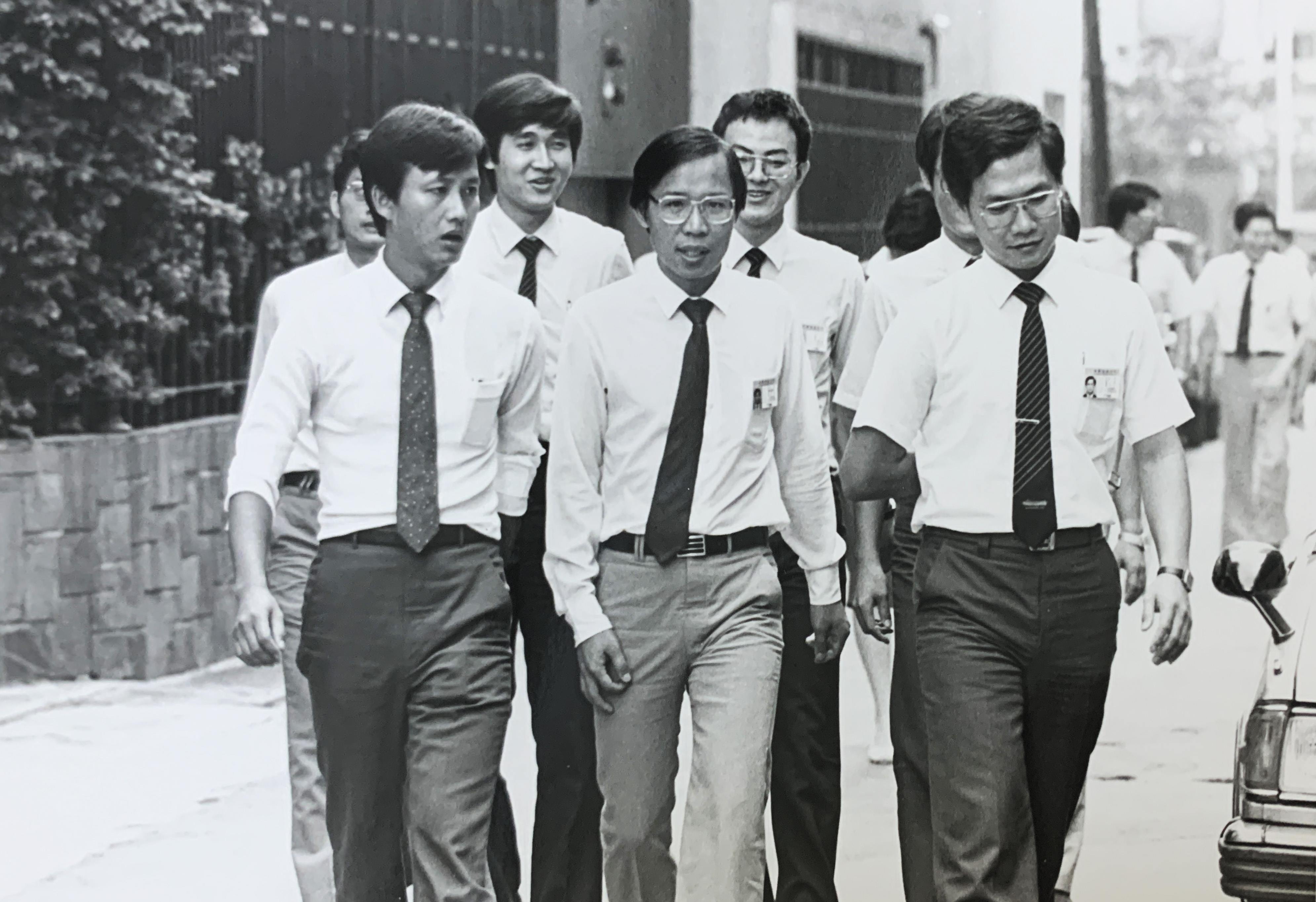
Evergreen’s emphasis on a clean working environment and the neat appearance of employees – such as its insistence that employees keep their hair short, sport solid color shirts, wear ties, and keep their shoes polished – replicate Chang’s personal style.
At the same time, Evergreen’s high salaries and excellent benefits, such as free lunches and a suite on board for each of its crewmen, along with giving access to middle and high-level managers to hold 40 percent of its stock, reflect Chang’s philosophy on how to treat people.
“Some bosses think employees depend on their bosses to survive. But without employees, bosses have no businesses,” Chang often says, revealing an understanding of how people really think.
He has objected, for example, to calling a ship’s crew members “sailors,” believing it to not be respectful enough. Evergreen therefore decided to change its titles to “marine engineer” for those who maintain the ship’s machines and “custodians” for janitors.
One Evergreen employee said Chang never forgets chats he has and takes action when he hears about a problem. Once when visiting a shipbuilder in Japan, he heard from an Evergreen engineer that the crew had a hard time working on ships year-round.
“So a few years later, he actually set up a sea-land rotation system,” the employee said.
One story showing Chang’s concern for his employees has become legendary within the company. He was near the company late one night at around 11 p.m. after entertaining guests (he lived nearby) when he saw a female employee working overtime who had missed her last bus home. So he personally drove her home.

Chang’s kindness to others sharply contrasts with his uncompromising style. He demands complete obedience, and when a supervisor asks that something be done, subordinates cannot show any reluctance or dismay.
“You cannot say ‘there’s no way.’ Even if there’s no way, you have to think of a way. If you take a job that can’t be done and end up doing it, that shows you have what it takes,” Chang said.
Chang has instilled this spirit of embracing challenges in the minds of young people that Evergreen sends to work at its overseas branches. Every time a young employee is rotated to a post abroad, Chang calls them in before they leave for a pep talk, telling them:
When you go abroad, don’t be afraid when you meet foreigners who are taller than you; you represent your company wherever you go, you don’t have to bow down to them.
In his daily life, Chang is naturally curious, often asking questions and paying close attention to his surroundings. His son-in-law Cheng Shen-chih recalled a bullet train ride from Tokyo to Osaka during a trip to Japan illustrating the point. Most of the passengers in the train were sleeping, Cheng said, but Chang was looking out the window, analyzing the strengths and weaknesses of Japanese architecture and comparing them to the design he had in mind for a new office building.
This curiosity, his loyalty to others, insistence on keeping his word, refusal to admit defeat or give in to setbacks, and hard work have resulted in the Evergreen miracle that has made it one of the world’s most formidable container shipping companies.
Have you read?
♦ 1983: Who defined the Taiwan lifestyle?
♦ 1982: Eyeing global leadership
♦ CommonWealth Magazine’s 40th Anniversary Special Tribute: Open · Taiwan
Translated by Luke Sabatier
Uploaded by Penny Chiang






